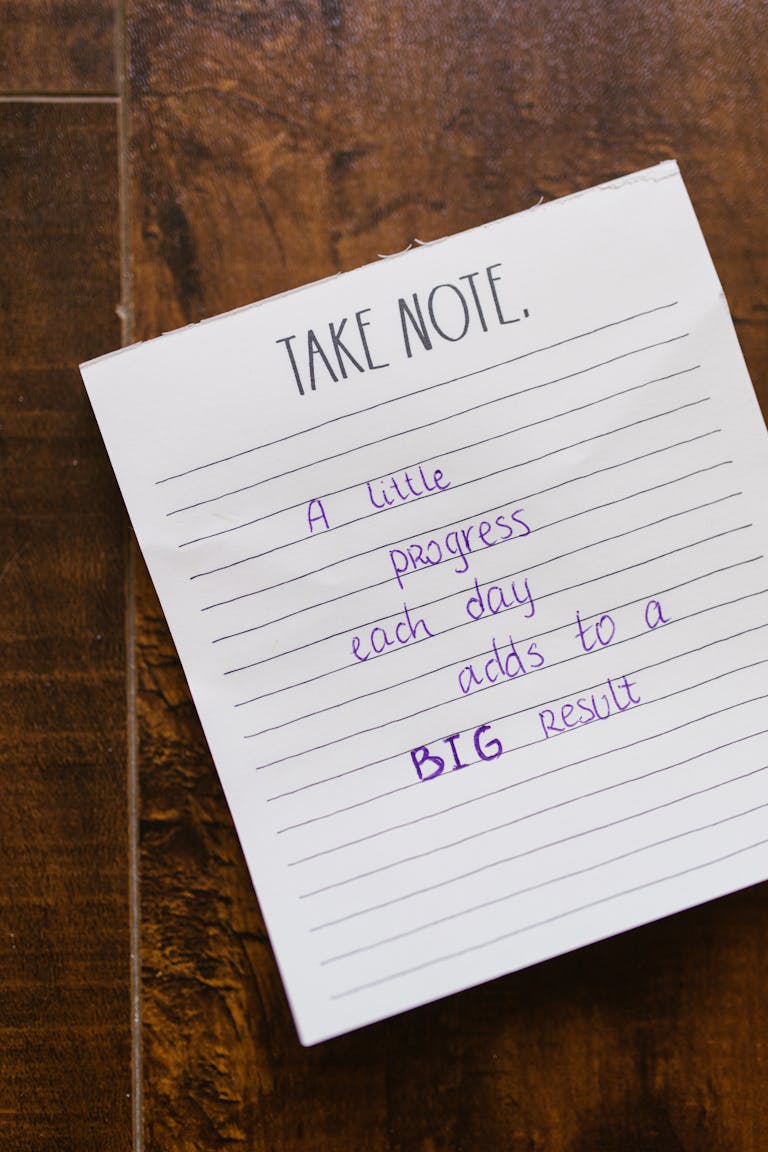Introduction
We all know that habits shape who we are and influence the trajectory of our lives. Whether it’s cultivating habits for personal growth, health, or productivity, the key to long-term success is consistency. But how do we turn good intentions into lasting habits?
In this article, we’ll explore effective strategies for building habits that stick and contribute to your overall success, both personally and professionally.

1. Start Small to Build Momentum
One of the biggest mistakes people make when forming new habits is trying to do too much at once. Setting overly ambitious goals can lead to frustration and burnout. Instead, start with small, manageable steps that build momentum over time.
1.1 Break It Down
For example, if your goal is to exercise daily, begin with just 5 minutes a day. Once you’ve established that routine, gradually increase the time. The key is starting small to avoid feeling overwhelmed and to give your brain time to adjust.
1.2 Celebrate Small Wins
As you achieve small milestones, take time to celebrate them. Each success, no matter how small, reinforces the habit and motivates you to keep going. These positive reinforcements will keep you engaged and focused on the larger goal.
2. Establish Clear and Realistic Goals
Effective habits are built on clear goals. When you set specific and realistic objectives, you give yourself a clear direction and a sense of purpose.
2.1 Define Your ‘Why’
Before starting any new habit, understand why you’re doing it. Whether you’re trying to get healthier, boost productivity, or reduce stress, knowing your deeper motivation will keep you committed during tough times.
2.2 Set S.M.A.R.T. Goals
Use the S.M.A.R.T. goal-setting method to create habits that are Specific, Measurable, Achievable, Relevant, and Time-bound. A SMART goal is clear and focused, providing a roadmap for success.
3. Use Triggers to Reinforce Your Habits
Habits often thrive when linked to an existing routine or trigger. By associating a new habit with an already established one, you create a natural cue that prompts you to take action.
3.1 Attach Your Habit to a Daily Routine
For instance, if you want to drink more water, make it a habit to drink a glass of water every morning right after brushing your teeth. By pairing a new habit with something you already do automatically, it becomes easier to remember and follow through.
3.2 Use Visual Reminders
Place visual cues around your environment to remind you of your goals. A sticky note on your desk, a water bottle next to your bed, or a fitness tracker on your wrist are all simple ways to reinforce your commitment to your new habit.
4. Track Your Progress
Tracking your progress is essential for staying accountable and motivated. It helps you see how far you’ve come, which can be incredibly motivating, especially when the going gets tough.
4.1 Use a Habit Tracker
There are numerous apps and tools available to track your habits. You can also go old-school with a paper journal or calendar. Regardless of the method, tracking your progress will make the process feel more tangible and rewarding.
4.2 Reflect on Your Journey
Take time to reflect on your progress periodically. Assess what’s working and what’s not, and make adjustments as needed. This reflection allows you to stay on course and make continuous improvements.
5. Overcome Setbacks and Stay Consistent
Setbacks are inevitable when building new habits. Whether you skip a workout or forget to journal, it’s important to not let one failure derail your progress. The key is getting back on track quickly and maintaining consistency.
5.1 Embrace the Power of Resilience
Instead of beating yourself up after a setback, use it as an opportunity to learn and grow. Resilience is a powerful trait that helps you bounce back and keep pushing forward, no matter the obstacles.
5.2 Stay Consistent
Even when you slip up, remember that consistency is what matters most. Missing one day doesn’t mean you’ve failed—it’s about staying committed and getting back into your routine the next day.
Q: How long does it take to form a new habit?
A: On average, it takes about 21 to 30 days to form a new habit. However, this can vary depending on the complexity of the habit and your personal consistency. The key is perseverance and sticking to your routine.
Q: What should I do if I lose motivation?
A: Revisit your ‘why,’ break your goal into smaller tasks, and celebrate small successes. Reaffirming your purpose and tracking your progress can help you regain motivation and keep moving forward.
Q: How can I make my new habit stick?
A: Start small, set clear goals, use triggers, track progress, and stay consistent. Over time, these actions will solidify your habit and make it a part of your routine.
Ready to Build Habits that Stick?
Start today by implementing these simple strategies. With consistency and the right mindset, you can build effective habits that lead to long-term success.

I’m EKBAL HOSSAIN MONDAL, the creator of SmartSolveTips.com — a blog dedicated to helping people improve productivity, avoid digital burnout, and live better online. With years of hands-on experience in self-development and digital wellness, I write practical tips and tools to help you stay focused and thrive in a fast-paced digital world.






